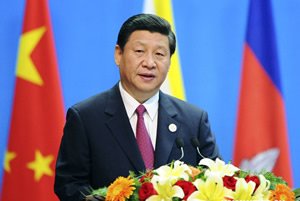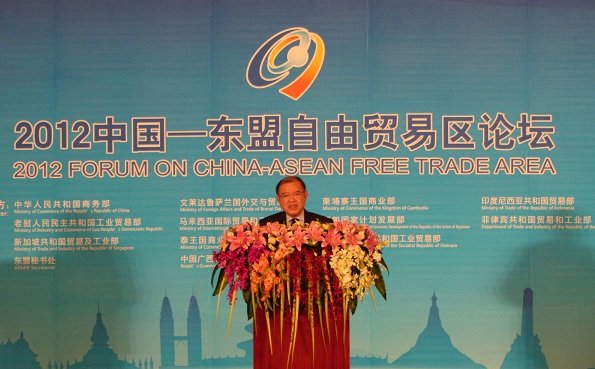Addressing the opening ceremony today of the 9th China-ASEAN Business and Investment Summit and Exposition, and the 2012 Forum on China-ASEAN Free Trade Area in Nanning, capital of south China's Guangxi Zhuang Autonomous Region, UNCTAD Secretary-General Supachai Panitchpakdi said that the China-ASEAN free trade area was an example of South-South regional integration that can promote scale economies, diversification and resilience.
He added that as large and dynamic economies deeply integrated into global production networks through global value chains, China and the 10 member countries of ASEAN (Association of South-East Asian Nations), can jointly act as a major locomotive for the global economy, and the China-ASEAN free trade area can make an important contribution to that effect.
 Chinese Vice President Xi Jinping addresses the opening ceremony of the 9th China-ASEAN Business and Investment Summit in Nanning |
China's Vice President, H.E. Mr. Xi Jinping, in his opening address said that it has just been less than three years since the launch of the China-ASEAN FTA.
This arrangement, covering 1.9 billion people, has laid a solid foundation for ASEAN-centered regional integration and cooperation, Mr. Xi said and added "We hope that the two sides will continue to implement the various FTA agreements, further improve on trade and investment liberalization and facilitation, and optimize the mix of import and export commodities, so as to meet, as scheduled, the trade volume target of 500 billion U.S. dollars by 2015."
Dr. Supachai remarked that the China-ASEAN free trade area can also serve to integrate the 3 Least Developed Countries in Southeast Asia into the regional supply chains.
He pointed to areas where more cooperative work still needs to be done under the China-ASEAN free trade arrangement:
Reducing costs through trade facilitation that addresses administrative, institutional and physical barriers associated with customs procedures and trade logistics.
Reducing transaction costs and enhancing competitiveness related to removal of non-tariff measures associated with SPS- and TBT-related product standards and technical regulations.
Cooperation in the infrastructure services sector, including transport, ICT and energy.
Promoting trade in services through such measures as recognition of suppliers' qualifications and facilitation of their movement across borders.



